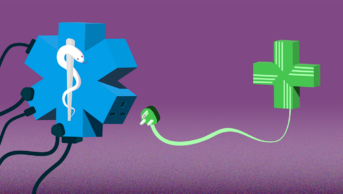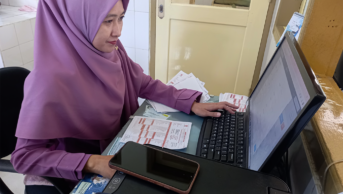
Shutterstock.com
All patients in England will be able to access their own GP records by March 2015 and their entire healthcare records by 2017, under plans contained in a report by the National Information Board, a collection of national health and care organisations.
Within four years, all citizens will be able to view – through websites and mobile apps – details of all healthcare visits, prescriptions, tests results, adverse reactions and drug allergies, according to the report, ‘Personalised health and care 2020: a framework for action’, published on 13 November 2014.
People will be able to add comments or preferences into their records, which will be visible to any healthcare provider alongside official medical notes. The report also includes details of a national digital standard for people at the end of life, enabling care preferences to be recorded, and says that a digital version of the Personal Child Health Record (or “red book”) will be introduced in 2016.
David Branford, chair of the Royal Pharmaceutical Society’s (RPS) English Pharmacy Board, hailed the report as “absolutely one of the most important documents that we’ve seen in a very long time”.
“It demonstrates a massive turnaround,” he said, “It’s really the culmination of a very high-profile programme of lobbying by the RPS among others. Now we need to think about how pharmacy practice can take full advantage of the potential of having access to the records.”
Dame Fiona Caldicott has been appointed to the newly created role of National Data Guardian. An independent expert in the field of healthcare information, she will act as the patients’ champion on security of personal medical information. She will be able to intervene if she has concerns about how data is being used or shared and request investigations and sanctions where necessary.
The decision to accelerate access to healthcare records coincides with new claims of data breaches by the NHS. Research published by the civil liberties and privacy campaign group Big Brother Watch identified 7,255 breaches between April 2011 and April 2014, equivalent to six breaches per day. Examples of the reported breaches include medical data being lost, shared on social media and inappropriately shared with third parties.
Commenting on the National Information Board framework, Emma Carr, director of Big Brother Watch, said: “Access to patient data has to be a two-way street and giving patients more control is a clear way of developing the trust.
“Whilst it is essential that patients have the ability to access their health records, it is also important that patients can see exactly who has had access to their records. This measure, alongside the introduction of the threat of jail time and criminal records, would work as a deterrent to those who seek to breach patients’ trust and confidentiality.”


